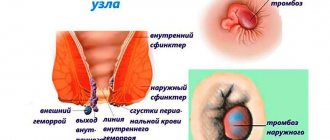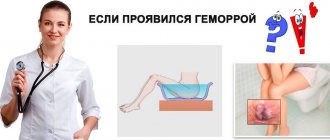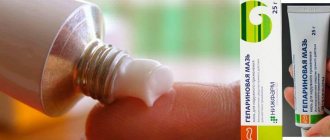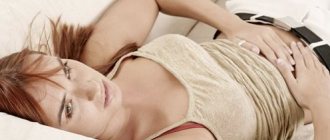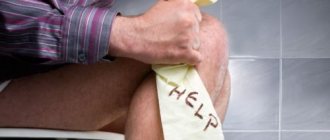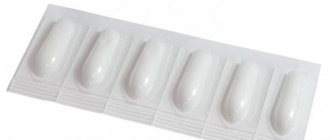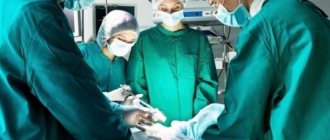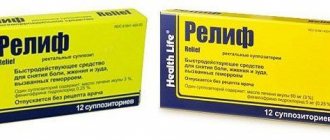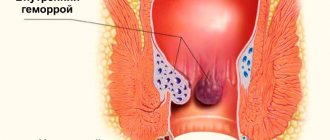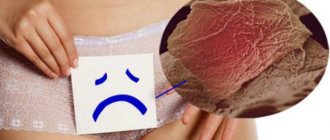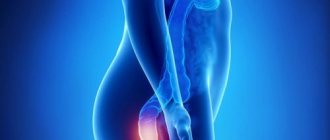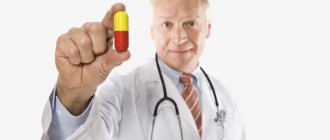The birth of a baby is a happy event for a family. Raising a child is not an easy, responsible job. In the first days after childbirth, women experience health problems associated with birth injuries, experience postpartum depression, every third young mother faces a delicate problem - hemorrhoids.
In the first days, an increased burden falls on the shoulders of a young woman: the range of responsibilities expands, sleepless nights are added, and the symptoms of the disease become mentally and physically exhausting.
Hemorrhoids do not go away on their own. The cause should be eliminated and measures should be taken to get rid of the disease.
Treatment of hemorrhoids after childbirth while breastfeeding is characterized by a number of features: a young mother is not allowed a number of medications due to the danger of the newborn being ingested with milk. Treatment of a nursing mother takes place under the supervision of a doctor, in combination with other measures.
Symptoms
Symptoms of the disease appear depending on the location of the hemorrhoidal cones. Classification of postpartum hemorrhoids:
- Internal - hemorrhoids form on the mucous membrane inside the rectum above the dentate line. In the initial stages, the disease is considered invisible;
- External - the bumps are located outside around the anus. They cause discomfort - they interfere with walking, sitting, and they hurt a lot;
- Combined - nodes are localized inside and outside.
With internal hemorrhoids, a woman may not feel much pain at first. The appearance of blood during bowel movements is alarming. There may be a sensation of itching, burning, or the presence of a foreign body in the anal canal.
The more the disease progresses, the more pronounced the symptoms appear. Internal nodes fall out during defecation; in the case of external hemorrhoids, swelling appears and the skin cracks. The pain increases and it is impossible to lead a normal lifestyle.
It’s difficult for a young mother - she has to spend a long time “on her feet,” carry a child in her arms, and take care of family members. The disease “unsettles” you, so if you notice unpleasant symptoms, you should not postpone your visit to the doctor.
Diagnosis of the disease
You can independently suspect the development of the disease, however, the final diagnosis must be made by a proctologist.
Signs of rectal disease:
- Feel itching around the anus. It intensifies when walking, playing sports, lifting weights;
- You regularly experience constipation; it takes at least 5 minutes for you to have a full bowel movement;
- You notice blood with clots on toilet paper after bowel movements. During the process you often feel pain or discomfort;
- You felt a ball-shaped seal near your anus;
- Sometimes there is a burning sensation in the anus. There is a tendency to varicose veins, blood clots, and blockage of blood vessels;
- There is discomfort in the anus. At the same time, you prefer to spend your days lying on the couch. You have a sedentary job in an office or as a transport driver. Or spend all day on your feet;
- Sometimes the rectum feels full, even after a bowel movement.
If you nodded to at least one statement from the list, this is a reason to see a doctor. There is nothing shameful or humiliating about this. From a medical point of view, the rectum is the same organ as the lungs or stomach.
When diagnosing, the doctor carefully conducts an examination and digital examination. In addition, the doctor may prescribe additional tests and diagnostic methods.
Causes
The mechanism for the occurrence of hemorrhoids is based on disruption of the blood vessels and veins located near the rectum and anus. Under the influence of a number of unfavorable factors, the outflow of blood is disrupted - liquid connective tissue stagnates, the walls of blood vessels stretch, and hemorrhoids enlarge.
In women during pregnancy, the development of the disease is associated with intensive growth of the fetus and enlargement of the uterus in the fifth or sixth month. As the fetus grows, it puts pressure on the internal organs and pelvic vessels, leading to poor circulation. As a result, hemorrhoids develop.
During childbirth, hemorrhoidal cones appear as a result of abundant blood flow to the pelvic organs during pushing, strong tension of the sphincter muscles and increased intra-abdominal pressure.
Causes of hemorrhoids during pregnancy and breastfeeding:
- Hereditary factor. The structural features of veins and blood vessels and pathologies are passed on from parents to children. If hemorrhoids are diagnosed in parents, the likelihood of the disease manifesting itself in children increases.
- Change in hormonal balance towards increased production of progesterone. The hormone affects the condition of the intestinal muscles, causing constipation and excess weight. Relaxes the walls of blood vessels, affects the appearance of hemorrhoids in the future.
- Excess weight that appears during pregnancy and does not go away during lactation leads to increased pressure on the pelvic organs and hemorrhoids.
- Inactive lifestyle, sedentary work.
- Taking medications.
- Poor nutrition. An abundance of fatty, smoked, sweet foods, baked goods, carbonated drinks.
During breastfeeding, a woman, as when carrying a child, often suffers from constipation.
Prevention of hemorrhoids
Preventive measures should be carried out long before conception, especially if a woman has a hereditary predisposition to the disease, as well as varicose veins. Engage in sports and an active lifestyle. Walk outside every day, preferably in a park area. Once pregnant, avoid tight clothing, especially jeans. Before childbirth, special emphasis should be placed on proper nutrition and prevention of constipation. To do this, you need to eat more fruits and vegetables, cereals, dairy products, dried apricots, lean meat and fish. Limit the consumption of flour products, soda, legumes, and spices.
Therapy
Treatment of hemorrhoids during breastfeeding depends on the severity of the disease and the location of the hemorrhoids. Includes a set of activities and procedures. When breastfeeding, a young mother is under the supervision of a doctor - self-medication will harm the health of the newborn baby.
Treatment is prescribed using conservative, minimally invasive, surgical methods.
Conservative treatment for hemorrhoids during lactation includes the use of medications, following a diet, performing a special set of physical exercises, performing hygienic and therapeutic procedures, and using traditional methods of treatment.
Which ointments for hemorrhoids during lactation are safe for mother and child?
It is best to treat hemorrhoids after childbirth with antihemorrhoid ointments, since these agents have a number of advantages, namely:
- simple and easy to use;
- suitable for the treatment of external and rectal hemorrhoids;
- act locally;
- safe for the child;
- rarely cause side effects;
- available;
- easy to dose;
- quickly eliminate the symptoms of the disease.
Drug treatment
Medicines and remedies are aimed at alleviating the condition of a person suffering from hemorrhoids. Breastfeeding mothers are interested in the effect of medications on the child’s health, safe medications, symptom relief at home, and the speed of improvement.
Consult a doctor - he will select safe and inexpensive medications, give the necessary advice on home procedures, and the duration of treatment.
To eliminate the symptoms of hemorrhoids during breastfeeding and not harm the child, doctors recommend that young mothers use products for external use - suppositories and ointments.
Candles are a safe remedy for breastfeeding
To treat internal nodes, it is preferable to use suppositories. During lactation, they should be prescribed by the attending physician. Suppositories for hemorrhoids during lactation are easy to use, and after just a few procedures they relieve the unpleasant symptoms of the disease.
The suppositories for hemorrhoids during breastfeeding contain a complex of medicinal components that relieve inflammation and pain and have a hemostatic effect. Sometimes drugs contain components for the resorption of blood clots, healing of wounds, cracks in the mucous membranes, which have an antiseptic effect.
Suppositories for hemorrhoids after childbirth are a convenient remedy for nursing mothers. Application does not require any time. Before administering the drug, hygiene procedures are necessary.
Effective and safe rectal suppositories for nursing mothers:
- Sea buckthorn – healing effect, relieves itching and removes toxins.
- Relief. These are pain relief, elimination of burning and itching, strengthening the walls of blood vessels, stopping bleeding and relieving inflammation.
- Neo-Anuzol – antibacterial and healing effect on the mucous membrane.
- Calendula is a medicine for inflammation, for resolving cones. Does not cause allergies and strengthens the walls of blood vessels.
Reviews about the drugs are positive. They provide an effect in unadvanced stages of the disease. Women with persistent hemorrhoids after a course of treatment need radical methods.
Creams and ointments for the treatment of hemorrhoids in nursing mothers
External hemorrhoids that occur after pregnancy and childbirth can be treated in the initial stages with ointments and creams.
Safe drugs for women and children during breastfeeding, which do not cause allergic reactions, and are effective for resolving bumps and healing wounds:
- Heparin ointment - helps resolve blood clots and relieves inflammation, restores damaged tissues and blood vessels, and also relieves pain and itching.
- Vishnevsky ointment is a proven medicine that is used for hemorrhoids in nursing women. The drug has an antimicrobial and healing effect with the property of eliminating constipation.
- Procto-Glivenol - improves blood microcirculation, increases the elasticity of the walls of blood vessels and strengthens them. Relieves inflammation, pain and burning.
- Natalsid is a safe remedy for breastfeeding, since its components do not pass into breast milk, relieves the inflammatory process and stops bleeding. Heals cracks.
The use of local pharmaceutical preparations by a woman during breastfeeding is effective in combination with warming procedures and folk methods.
Treatment with home remedies
It is permissible for a young mother to use improvised means to treat hemorrhoids. Breastfeeding will not have a negative effect on the baby’s health, and the mother’s health will be improved by the following procedures:
- Baths. They help relieve pain, reduce stress, and alleviate the condition. Used with medicinal plants - chamomile, nettle, string, calendula. To stop bleeding, cold baths are useful; warm ones are made using potassium permanganate, onion peels, crushed garlic, herbal decoctions, aloe juice, and salt. The procedures are characterized by an antiseptic effect, salt baths are considered an anti-inflammatory agent - they heal festering wounds.
- Compresses and lotions. It is advisable to use in combination with pharmaceutical drugs for external hemorrhoids. A cotton pad (folded piece of bandage) is soaked in sea buckthorn oil, honey, propolis, saline solution, and aloe juice. You can use grated potato gruel. Cold compresses made from cucumber or aloe pulp relieve pain and bleeding.
- Tampons. At home, use homemade tampons soaked in fir, castor, camphor, sea buckthorn and butter, aloe juice, and honey. Homemade candles are made from raw potatoes, a piece of aloe pulp and mumiyo. Ice cubes made from herbal decoctions, aloe juice and cucumber relieve pain and inflammation.
- Herbal teas and decoctions. To improve intestinal functions, strengthen blood vessels and eliminate inflammatory processes, herbal decoctions and teas are consumed internally. Rosehip decoction has a beneficial effect on the functioning of internal organs and is considered a source of vitamin C.
Traditional recipes for breastfeeding must be agreed with your doctor. Children's doctor Komarovsky E.O. in the article “8 rules for using medications during breastfeeding”, she gives recommendations to young mothers in case the need for treatment arises.
Folk remedies and medicines
During pregnancy, an unconventional remedy for hemorrhoids is often used:
- Potato. The product has an astringent effect. You can use it to prepare compresses.
- Black Rowan. You need to drink the juice three times a day, 0.5 cups half an hour before meals.
- Strawberry and chamomile. A healing decoction is prepared from the components, which is used several times a day for washing. To achieve a positive result, the product must be used for a long time, especially if a large hemorrhoid has formed.
Diet
Hemorrhoids will go away faster and will not reoccur if you combine treatment with the right diet. A mandatory part of the program for getting rid of hemorrhoids for nursing mothers is following a diet. To eliminate the problem, improve the functioning of the digestive system and get rid of constipation. The menu includes:
- Vegetables and fruits containing fiber, a lot of vitamins, microelements;
- Porridge is a source of slow carbohydrates;
- Lean varieties of meat, poultry, fish will enrich the diet and become a source of protein;
- Fermented milk products and cottage cheese are a source of calcium and have a beneficial effect on the functioning of the gastrointestinal tract;
- Whole grain bread should be used by a nursing woman to replace products made from white flour, which cause fermentation and bloating.
From your diet, exclude foods that irritate the digestive tract, cause flatulence, and contain preservatives and chemical additives. During lactation, a nursing woman needs to strictly control the amount of salt and sugar in her diet.
Drinking regime is a component of a healthy lifestyle. Remember how much water you need to drink throughout the day. The required amount is 30 ml per 1 kg of weight.
You can’t overeat or starve – eat regularly, in small portions. Eliminate fatty, fried, smoked, canned food, baked goods, and carbonated drinks from your diet.
If hemorrhoids have resolved, stick to proper nutrition in order to lose excess weight and avoid constipation.
What does dietary nutrition consist of?
During pregnancy and recovery from hemorrhoids, you will need to follow a diet.
Those who give birth need to be understood, since they are going through a recovery process, and have already been tormented by a terrible illness, it is not easy for them. When carrying a baby, a woman should adhere to a diet, during which she will have to give up a lot. Exclude from the diet:
- sweets and flour;
- smoked meats and spices;
- fat;
- salinity;
- peppered dishes.
Physical activity
For treatment with conservative methods to produce results, a young mother must perform simple physical exercises. It takes 5 minutes to complete the complexes daily.
Walking in the fresh air is beneficial for mother and baby. In good weather, walk with your baby for 2-3 hours a day, resting mentally and physically.
Hemorrhoids can be cured using external and home remedies in the initial stages of the disease, in combination with other measures.
If the disease does not go away, the symptoms worsen, and you have to resort to minimally invasive or surgical methods.
Why is it dangerous to ignore the problem?
The disease does not go away on its own. And if hemorrhoids are inflamed, then they cause a lot of inconvenience and discomfort. If ignored at first, the deviation develops into a chronic form. Advanced pathology in which the node has come out is subject to surgery. And if this is ignored, then treatment is only possible through surgery. In addition to inflammatory processes in the body, the disease can degenerate into cancer.
Ignoring the disease during pregnancy or lactation is unacceptable, because it leads to a deterioration in well-being and dangerous consequences.
Advice for a nursing mother
The development of hemorrhoids occurs within a few weeks after childbirth. Experts strongly recommend following certain rules at this time:
- Carefully observe intimate hygiene. You can carry out the procedure of washing with a solution of potassium permanganate. It is recommended to wash the anus with cold water after using the toilet. This way the muscles quickly return to normal. But only the anus, otherwise you can get cystitis.
- Watch your stool and avoid constipation. If you have not had a bowel movement for 2 days, you need to take a mild laxative or do a cleansing enema.
- Follow a diet. It is necessary to avoid an allergic reaction and bloating in the child, as well as to facilitate the process of bowel movements.
- At the first manifestations of hemorrhoids, go to the gynecologist and report the problem. Don't forget about your own health. A small child needs a healthy mother.
Every specialist recommends not to self-medicate.
Gymnastics
- An effective and simple exercise is to tense and relax the sphincter. You can do the exercise anywhere, anytime and for as long as you want. It regulates blood flow in the groin area.
- Lie on the floor on your back and bend your knees. The back needs to be lifted and released. Again, we can tense and relax the muscles we need.
- From the same position, perform wide leg swings - a scissors exercise.
- From the same lying position, do a bicycle. This exercise strengthens the pelvis and normalizes the muscle tone of the abdominal walls.
- If there are no contraindications, you can perform the birch tree. Exercise removes blood from the pelvic area.
Daily ten-minute sessions are enough to get rid of hemorrhoids or prevent their development.
